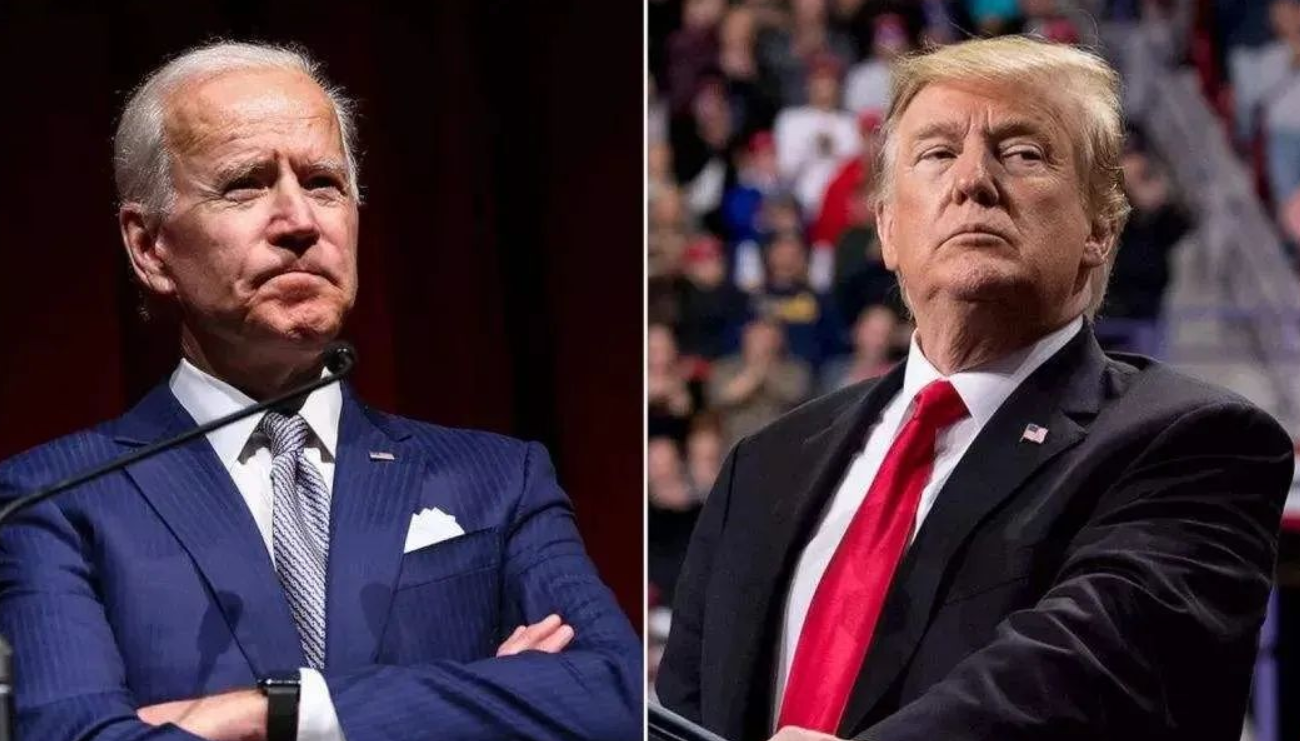
Democratic presidential candidate and Vice President Harris has raised $540 million since he took over the race for the White House, his campaign team announced Tuesday. However, the Republican side also benefited from the announcement of the independent presidential candidate John F. Kennedy Jr. to withdraw from the race and join the Republican presidential candidate Donald Trump.
The race is now "too close to call" in both the Democratic and Republican races. As the election approaches, the parties' economic policy platforms, their handling of sensitive issues such as the Israeli-Palestinian conflict and the upcoming two presidential and one vice presidential debates will all shape the race.
Harris takes advantage of 'honeymoon' to go after Trump
Trump's popularity skyrocketed after he was shot dead at a campaign rally in Pennsylvania on April 13. Many people even asserted on social media: "This shot directly sent Trump to the presidency." However, when this wave of heat faded, especially after the Democratic President Joe Biden announced his withdrawal from the election on the 21st of the same month and Vice President Harris "took over" to run, the election situation changed dramatically.
Recent polls have shown Harris rapidly reversing the race. At the national level, Harris has a 1.5 percentage point lead over Trump overall and leads in the key swing state of Pennsylvania. Pollsters put Harris' chances of winning the November 5 presidential election at about 52 to 54 percent. By contrast, the Republican's chances of winning the general election have fallen by 10 percentage points since August 1st.
Voters cast their ballots at a polling place in Petersburg, Virginia, the United States, March 5, 2019. Voters in more than a dozen states and U.S. territories cast their ballots for candidates in the so-called Super Tuesday primaries on the day of the 2024 presidential election. The primary is the first stage of the U.S. presidential election. This year's U.S. presidential election will be held on November 5. Xinhua (Photo by Winstead Barnes)
With more than two months to go until election Day, there are still many important events that could affect the direction of the election.
First up are two presidential debates and one vice presidential debate. The first televised debate between Harris and Trump is scheduled for Sept. 10, and the second debate is currently scheduled for October. The only vice presidential debate between Democratic nominee Tim Walz and Republican nominee James Vance will take place on October 1. The televised debate will be a tough test for both candidates, and their performance will directly affect their support ratings. The immediate trigger for Mr Biden's withdrawal was a poor debate performance against Mr Trump.
Then there are contingencies. For example, Kennedy Jr. announced on the 23rd that he would withdraw from the election and support Trump, which further complicated the election situation. Kennedy Jr. 's swing state vote flow is particularly critical, such as Arizona, Kennedy Jr. still has 6% support, his supporters' votes will determine the outcome of the election in this key swing state.
The ongoing Israeli-Palestinian conflict will also add to the uncertainty. Compared to Republicans, Democrats tend to criticize Israeli military actions for causing Palestinian civilian casualties in rhetoric, while continuing to support Israel militarily, economically, diplomatically, and in public opinion. However, this "swing" is bound to make the Democratic Party "not to please both sides", both to offend the Palestinian voters, and to make it difficult to look good from the supporters of Israel.
Chauncey McLean, president of Future Forward American Action, a political action committee that has campaigned heavily for Harris, also acknowledged that the race was "too close to call" and that "things are very tight." Public opinion believes that Harris is still in the new "honeymoon period", after all, only about a month began the campaign, and with the subsequent campaign performance and the two parties' policy blueprint gradually clear, her strong momentum can continue to be seen.
Both parties trumpet economic policies that pander to voters
For ordinary Americans, improving people's lives is the central issue, and that involves the candidates' economic policies, especially those that affect people's immediate interests.
Xinhua News Agency reporter recently reported that during the Democratic National Convention encountered a 16-year employee of Heinz Group John. Asked what issue he was most concerned about in the election, he said: "My wallet, of course. I want someone to be president who can increase my income."
He said that his income was very good during the Trump administration, and it was less good during the years of Biden's administration, so he will vote for Trump this time.
The ideas of people below the middle class are mostly simple and straightforward, which is why Harris and Trump are competing to present themselves as "the greatest champion of the working class."
Harris and Trump have launched their own economic policies, after comparison, it can be found that their policies are basically because of a clear "vote orientation" and appear to be eager for quick results, and voters need what they provide, which is not really a long-term solution from the perspective of national development. Moreover, most of these election promises will be difficult to fulfill in the face of high U.S. debt and persistent inflation.
In general, in addition to both sides touting tax incentives, Harris has focused on reducing food, housing and health care costs, while Trump has emphasized tariffs while promising to extend his 2017 tax cuts, rein in inflation and increase oil and gas production. Harris and Trump's economic policies overlap in many ways, with both focusing on boosting jobs and protecting industries, even at the cost of imposing higher prices on inflation-plagued American consumers and even making the economy less efficient.
Another thing the two men have in common is that there are only promises, and no path or way to fulfill them. For example, the most critical is how to fill the hole formed after tax cuts, both have no clear plan.

